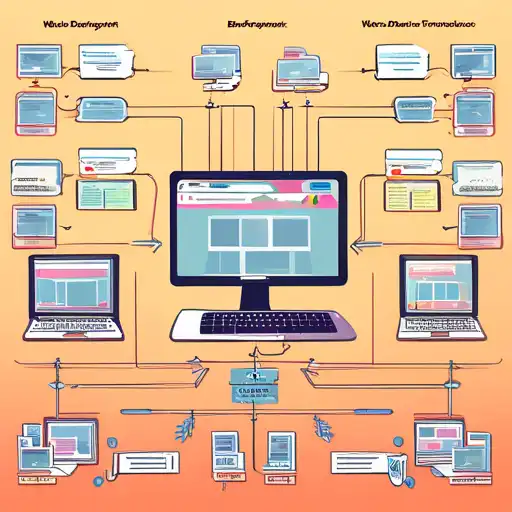Introduction to Web Development Frameworks
In the ever-evolving world of web development, choosing the right framework can be a daunting task. With a plethora of options available, each promising to be the best, developers often find themselves at a crossroads. This guide aims to simplify the decision-making process by highlighting key factors to consider when selecting a web development framework.
Understanding Web Development Frameworks
Web development frameworks are designed to support the development of web applications by providing a standard way to build and deploy them. They offer a foundation upon which developers can build, saving time and effort by eliminating the need to start from scratch.
Key Factors to Consider
- Project Requirements: The nature of your project plays a crucial role in determining the most suitable framework. Consider the size, complexity, and specific needs of your project.
- Community and Support: A strong community and good documentation can significantly ease the development process. Look for frameworks with active communities and extensive resources.
- Performance: Evaluate the performance benchmarks of the frameworks you're considering. Speed and efficiency can greatly impact user experience.
- Scalability: Ensure the framework can handle growth. Your chosen framework should be able to accommodate increasing loads without compromising performance.
Popular Web Development Frameworks
Here are some of the most popular web development frameworks today:
- React: A JavaScript library for building user interfaces, known for its flexibility and efficiency.
- Angular: A platform and framework for building single-page client applications using HTML and TypeScript.
- Vue.js: An approachable, versatile, and performant JavaScript framework for building UI and single-page applications.
- Django: A high-level Python web framework that encourages rapid development and clean, pragmatic design.
Making the Right Choice
Choosing the right web development framework is not about finding the most popular one but the one that best fits your project's needs. Consider the factors mentioned above, experiment with a few frameworks, and select the one that aligns with your goals and expertise.
For more insights into web development, check out our latest trends in web development.
Conclusion
Selecting the appropriate web development framework is a critical decision that can influence the success of your project. By carefully evaluating your options and considering your project's specific requirements, you can make an informed choice that will benefit your development process in the long run.
